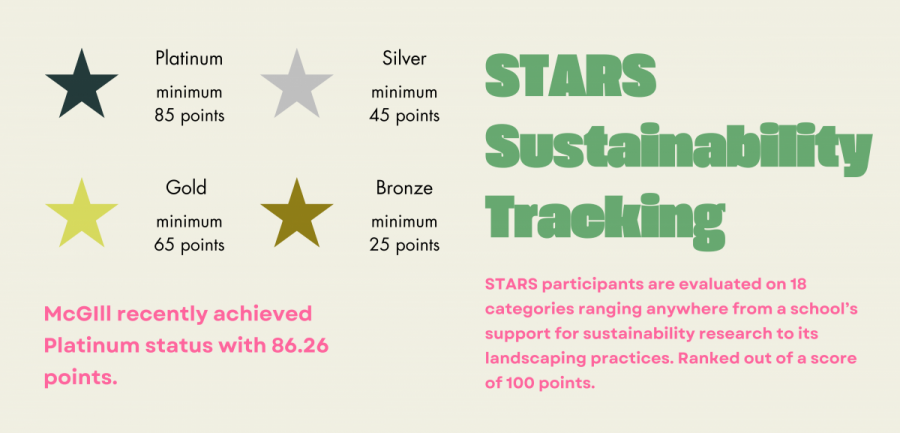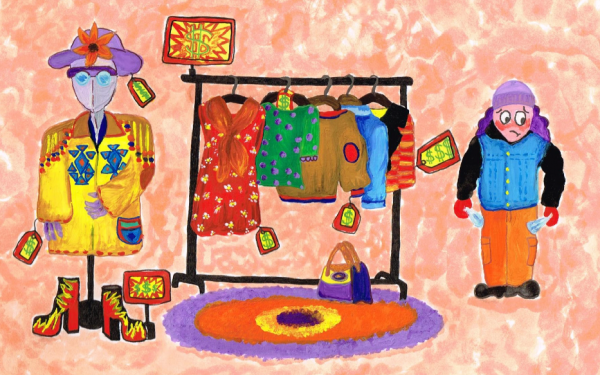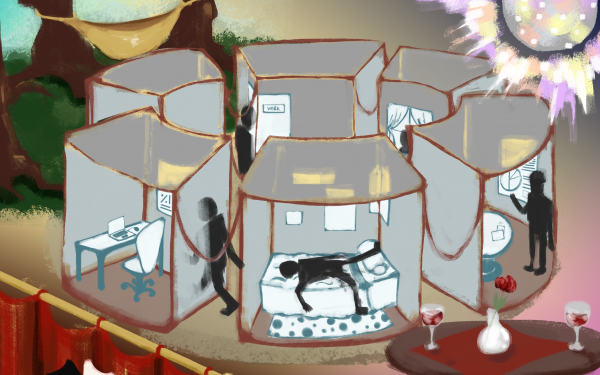McGill University used herbicides in 2024 without public disclosure, report confirms
Herbicides Roundup and Destra were used in the university’s production of corn
McGill University used both Roundup and Destra herbicides on the school’s Macdonald Campus Farm in 2024, despite stating in a sustainability report earlier that year that no herbicides were used on campus at all, according to an access to information (ATI) request obtained by The Link.
According to Macdonald Farm management, there are currently no publicly available sources that disclose the university’s herbicide use.
“We don't publish it on a website,” said Macdonald Campus Farm’s general manager Janice Pierson, referring to the farm’s use of weed killers. “But if people come and question us, we explain to them what our practices are.”
ATI documents reveal that Roundup and Destra, two widely used herbicides in commercial agriculture, are applied on the Macdonald Campus Farm to control weeds while cultivating corn, which, according to Pierson, is used primarily as feed for the university’s research dairy cows.
This information contradicts a McGill sustainability report published in January 2024 under the Sustainability Tracking, Assessment & Rating System (STARS), which initially stated that “no pesticides or herbicides are used on the campus.”
The university’s STARS report was revised in September 2024, near the start of this investigation, to clarify that its herbicide-free practices apply only to McGill’s downtown Montreal campus.
The STARS report also excluded any assessment of the sustainability practices conducted on Macdonald Campus’s experimental agricultural land in Sainte-Anne-de-Bellevue.
According to Pierson, only students attending courses as part of the university’s farm management and technology program are informed outright of McGill's use of Roundup and Destra on Macdonald Campus.
“We disclose that information to the students because it's part of their learning experience,” she said.
Additional details relating to the Macdonald Farm’s use of Roundup and Destra, such as quantities used, are submitted annually to the Ministry of Agriculture, Fisheries and Food (MAPAQ) in a sustainability report called the Agri-environmental Support Plan (PAA). However, Pierson said that, as far as she is aware, the Macdonald Farm’s PAA is not available to the public.
Copies of the Macdonald Farm’s PAA and receipts for Roundup and Destra purchased in 2024 were withheld from The Link following a second ATI request. Among other reasons, the decision was made on the basis of protecting third-party “industrial secrets” or “confidential information” that could “likely hamper negotiations in view of a contract” or “reduce the third party’s competitive margin.”
Information obtained through ATI confirmed that in 2024, the Macdonald Farm sourced all chemical herbicides exclusively from Synagri, a crop input supplier headquartered in Saint-Hyacinthe, Quebec.
Why was McGill’s herbicide use excluded from their STARS report?
Administered by the Association for the Advancement of Sustainability in Higher Education, STARS is intended to enable comparisons between higher education institutions worldwide using a standardized set of metrics. STARS reports are published every four years, and all data included is disclosed voluntarily by the relevant institution.
STARS participants are evaluated on 18 categories ranging everywhere from a school’s support for sustainability research to their landscaping practices. Ranked out of a score of 100 points, an institution may be awarded a STARS Bronze (minimum 25 points), Silver (minimum 45 points), Gold (minimum 65 points) or Platinum (minimum 85 points) rating.
In its latest report released in January 2024, McGill’s overall score rose by around 10 points, boosting the school from a STARS Gold (76.32 points) to Platinum (86.26 points).
McGill’s report of its landscape management practices consisted of analyzing around 60 hectares of land managed by the school’s groundskeeping team. According to associate director of the Office of Sustainability Shona Watt, this includes everything that is cut, mowed and watered on the McGill campus.
However, what is not included within the report is any McGill-owned land not managed by the school’s groundskeeping unit. Close to 1,500 hectares of land, including the Macdonald Campus Farm, were excluded from the report.
“Most universities or colleges don't have this type of scenario that McGill has, where they have agricultural research,” Watt said. “That's why it falls out of the scope of STARS.”
Why were Roundup and Destra used and how do they affect the environment?
ATI documents show that the Macdonald Campus Farm employs no-till farming practices when producing corn. Rather than overturning the topsoil before planting, any residue from past crops, weeds or animal matter is left on the surface of the field. According to the ATI, this approach helps reduce soil erosion and contributes to biodiversity by protecting insects and microorganisms.
However, as a result of being unable to physically remove weeds, herbicides like Roundup and Destra are sprayed onto the farm’s corn fields instead.
“There are certain weeds, like broadleaf, that can really, really take over certain fields,” Pierson said. “You have to have some type of solution to be able to work against that.”
But Roundup comes with some risks of its own. Its active ingredient, glyphosate, can harm certain organisms it wasn’t specifically designed to target, according to Zachary Stahlschmidt, professor of ecology at the University of the Pacific. He said that glyphosate exposure can reduce biodiversity by causing declines in some species of pollinators, like honeybees.
“Even if we have a few of them in decline, that translates into the [lack of] pollination of dozens of plant species,” Stahlschmidt said.
Aquatic animals are especially vulnerable to glyphosate exposure because, unlike land animals, they lack certain defences against it, according to Stahlschmidt. Destra, which is added to the Roundup spray used on the Macdonald Campus Farm, can also be harmful to aquatic life and is labelled a "marine pollutant" by its manufacturer, Corteva Agriscience.
“Certain adaptations for living in water require you to be able to absorb things from the water,” Stahlschmidt said. “Those chemicals leach into the groundwater or […] run right off into, say, a river.”
The Macdonald Campus Farm has implemented additional techniques to control weeds alongside its herbicide use, such as planting cover crops. Beans, for example, are planted alongside rye to drown out weeds that would otherwise be targeted by weed killers, according to Pierson.
Despite aims to reduce its use of inorganic products, Pierson said that fully adopting organic practices is not feasible since it would significantly limit much of the research conducted on the farm.
This article originally appeared in Volume 45, Issue 7, published January 14, 2025.





_1_600_375_90_s_c1.jpg)

